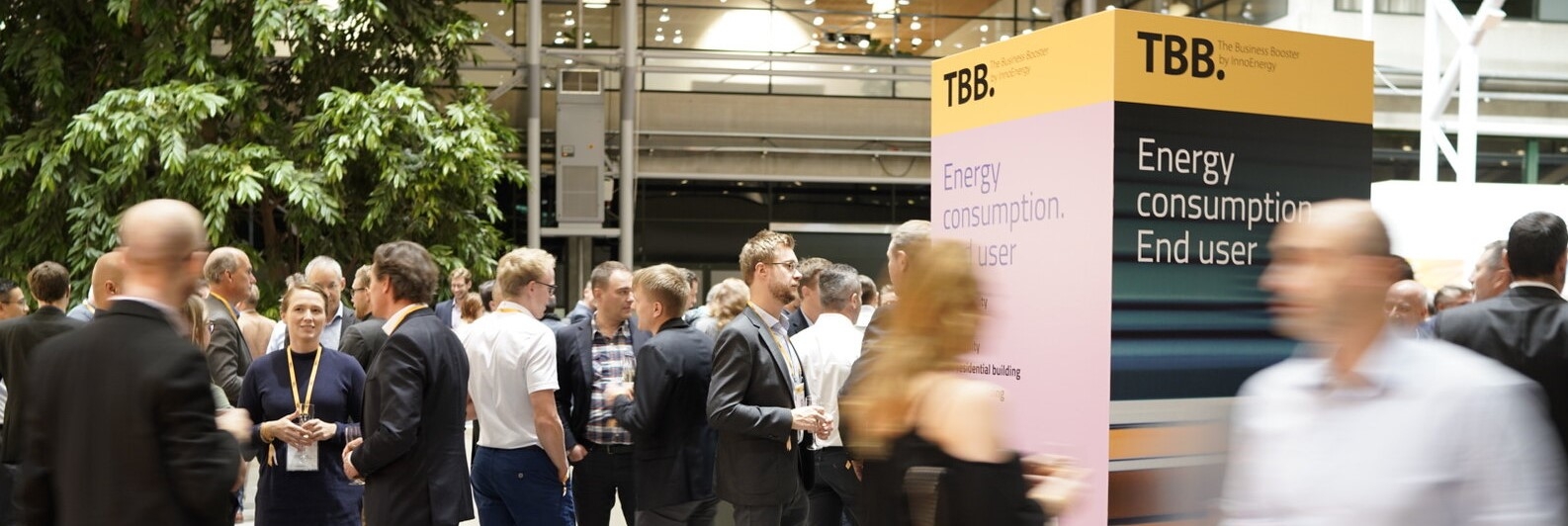A new industrial phase for the European Green Deal

By Baptiste Buet, EU Business Unit Director, EIT InnoEnergy.
The European Union steps up efforts to accelerate clean tech with an industrial strategy that is Made in Europe – an ambition that EIT InnoEnergy will continue to deliver on.
The EU’s ‘State of the Union’ speech
Each year, the President of the Commission makes a much-anticipated speech entitled the ‘State of the Union’, in which the priorities for the European Union (EU) are outlined for the year ahead. This year, climate tech was front and centre of the EU’s priorities with particular focus on the industrial pillar of Europe’s flagship Green Deal. A robust green industrial policy is now needed to reap the socio-economic benefits of the Green Deal: both resilient industrial value chains in climate technologies – like batteries or solar PV – and accelerated pathways to decarbonize hard to abate industries. For over a decade, InnoEnergy has been accelerating and de-risking industrial frontrunners to deliver on the European Green Deal ambitions.
Three main messages on the Green Deal from President von der Leyen’s address were key:
The European climate agenda is also an economically viable one
In the first years of the European Green Deal, the emphasis was put on setting international climate ambition and setting EU targets into law. However, as implementation work for climate neutrality is now well underway, the Commission President’s message was clear: the Green Deal is also “Europe’s growth strategy”.
Europe now leads on investment in clean hydrogen with investment flows far higher than other regions and over the past five years, the number of clean steel factories in EU has gone from 0 to 38 factories. European frontrunner H2 Green Steel, supported by InnoEnergy since its launch, will start operation of their green hydrogen steel plant in 2025 following a funding round of €1.5 billion. InnoEnergy’s full portfolio of 200 climate tech companies has raised more than €9.7 billion investment already. These companies are on track to generate €110 billion in revenue and save 2.1G tonnes of CO2 cumulatively by 2030.
Another growth area the transition is set to bring is the creation of millions of new jobs. It is projected that by 2030, 14 million jobs will be created worldwide through clean energy technologies alone. However, some 5 million jobs within fossil fuel sectors are expected to be lost, and in order to sustain long-term growth, the European workforce will need to be reskilled, retrained, reskilled or upskilled to work in new markets such as EVs. The InnoEnergy Skills Institute is set to answer that call, aiming to bridge the skills gap in industrial clean tech value chains.
The future of climate tech is Made in Europe
Re-industrialising Europe to remain competitive in the global arena was also a major theme of President of the Commission’s address: “From wind to steel, from batteries to electric vehicles, our ambition is crystal clear: the future of our cleantech industry has to be made in Europe“.
The solar industry was cited as a prime example of a European value chain undercut and lost on the global market. China currently dominates the global PV manufacturing value chain supplying between 75% and 98% of PV products and components. Efforts to re-shore this industry have already begun. The European Solar PV Industry Alliance (ESIA), launched this year and co-led by InnoEnergy, aims to rebuild 30GW of EU manufacturing capacity by 2025 (representing around half of PV installed every year in Europe). French company Holosolis has started the charge with plans to open a 5GW PV gigafactory in the Northeast of France, while ROSI opened the first factory dedicated to recycling solar panels and revalorize raw materials like silicon and silver.
Looking at batteries, the European Battery Alliance, which InnoEnergy leads work on, estimates that the battery value chain could be worth €250 billion per year by 2025 and create more than 4 million jobs in Europe. With the nascent EU battery industry facing new global challenges, including aggressive Chinese competition on both batteries and electric vehicles, ensuring Europe’s competitive battery value chain based on stringent sustainability, recyclability and traceability, must be the priority. New European players are already lining up to fill the gaps in the value chain, but more are still needed. One of our first portfolio companies, Verkor, recently raised €2 billion – the largest amount an early-stage start-up ever received in France – to build a gigafactory with capacity of 65 GWh to be operational by 2030.
A strategy for industrial decarbonization in focus
The EU has already initiated vital work to assess industrial transition needs to meet the set targets though its Green Deal Industrial plan announced last year. During the State of the Union address, the need to develop an approach for each industrial ecosystem was emphasized, aiming to “support every sector in building its business model for the decarbonisation of industry”.
Traditionally hard-to-abate industries such as iron and steel, fertilizers, chemicals or heavy mobility have complex value chains which can often result in a so-called green premium. That’s why InnoEnergy takes a full value-chain approach to industrial decarbonization to spread risk, absorb costs and remain competitive. Through the European Green Hydrogen Acceleration Center (EGHAC) entirely new industrial hydrogen players are created to meet the decarbonization needs of the whole value chain. GravitHy, a new green and low-carbon iron and steel company and FertigHy, a new low carbon fertilizer company were launched this year. This is a model which will be replicated across other sectors.

